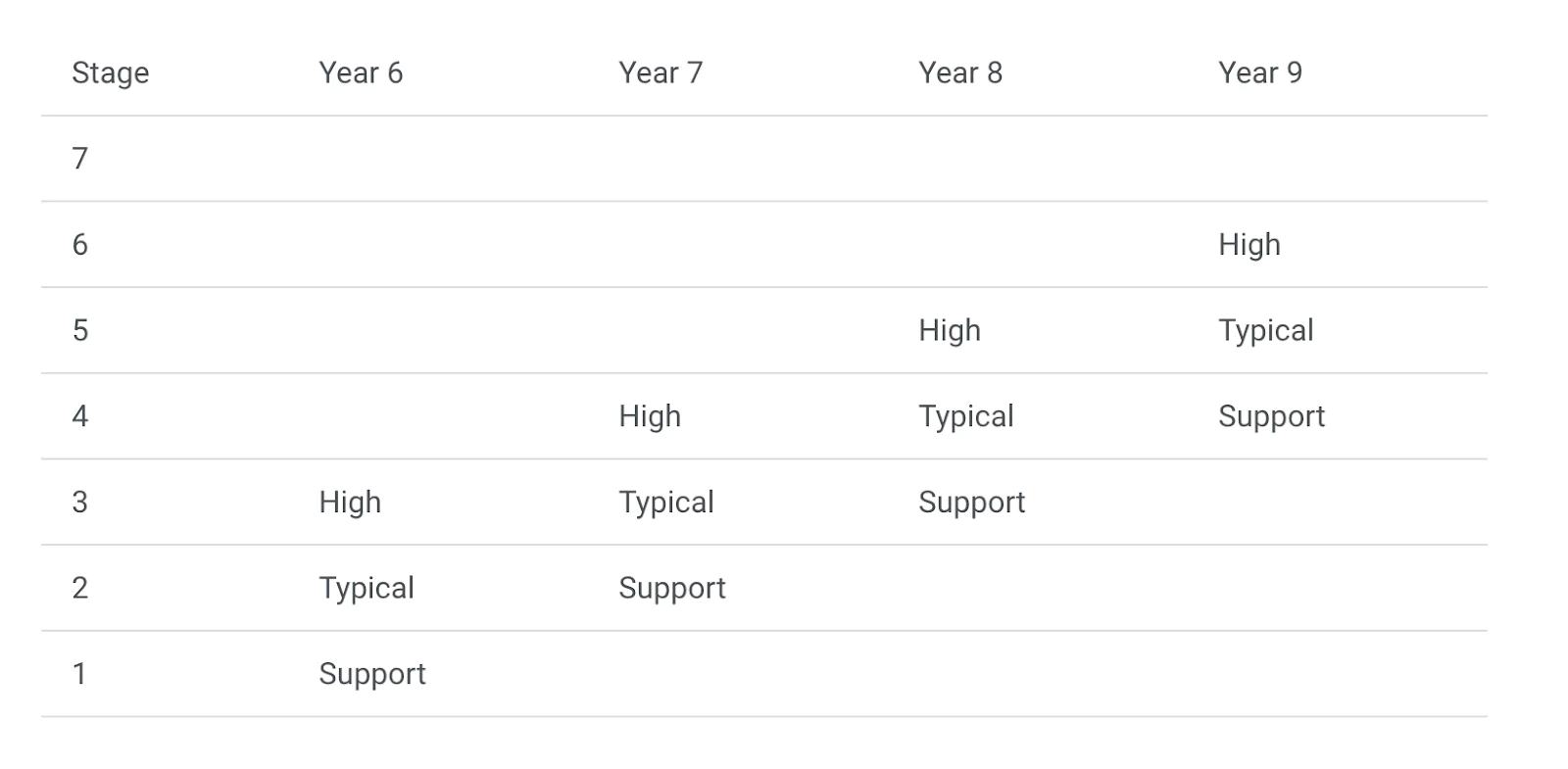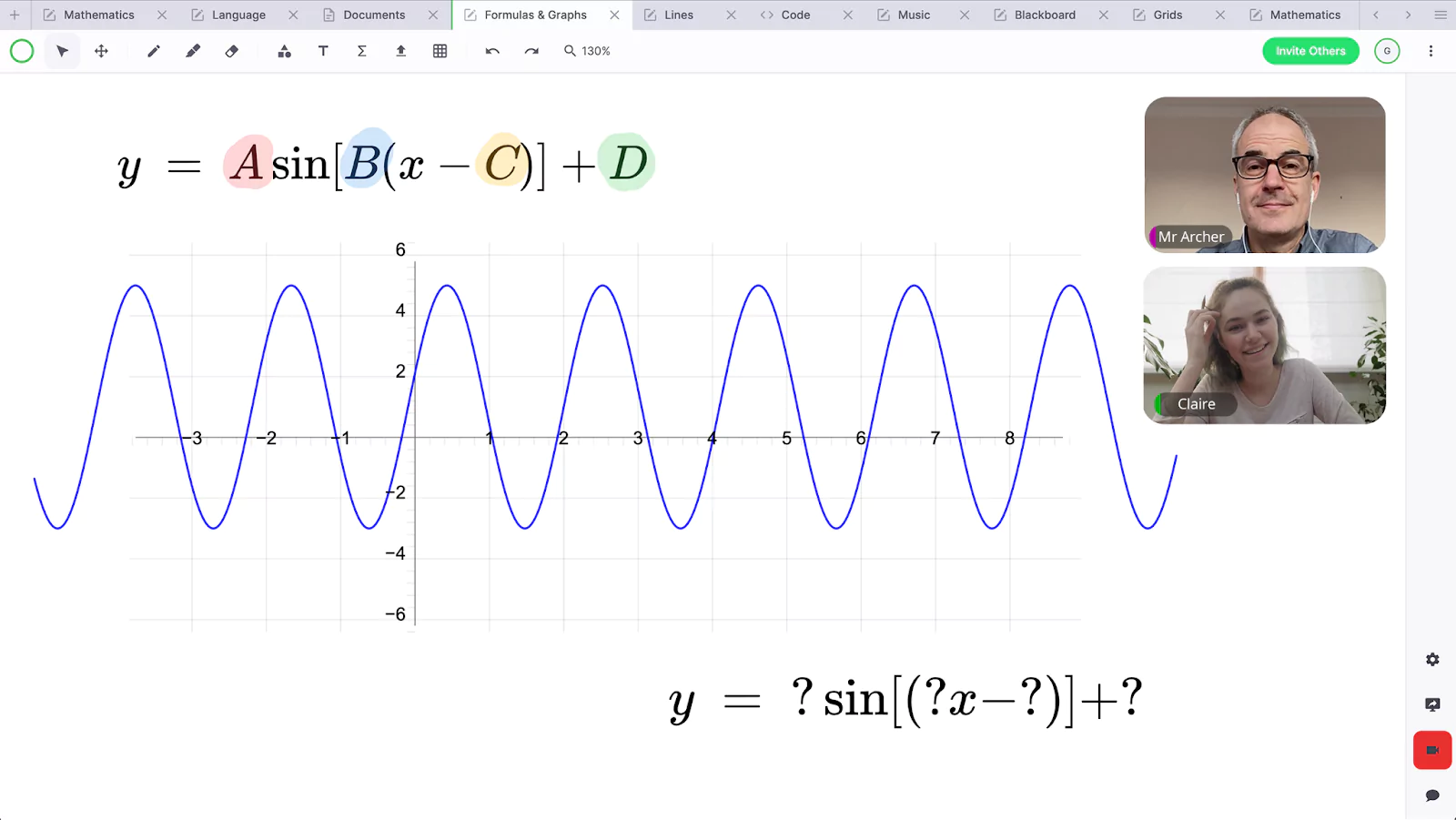How are Children Assessed at KS3?

So your child is in KS3 and already in secondary school, gosh how time flies!
It's easy to fall into the trap that it may seem a little early to worry about assessments at such a young age. After all, the assessments at this stage don’t count for anything and won’t affect their future. Right?
While there is truth to this, there is a fatal flaw that most parents and students don’t realise until it is way too late. Much to their dismay.
“Learning is a skill that requires practice and discipline to master”
The Skill of Learning
Learning is indeed a skill although it is seldom seen as such. Much like how teaching is. You wouldn’t trust just anyone who passed the exam with their own methods to help you do the same.
See also: 5 Tips to Become a Lifelong Learner
Learning can also be seen as a journey, not just a destination. The famous Archimedes’ Eureka moment came from when he finally understood the principle of buoyancy and how to express it - he’d known that it works for some time before that.
Every student learns differently and the more time they have to hone their own learning style and be able to apply it to the cascade of information that school throws at them, the more cool, calm and collected they will be when it comes to the big life-changing exams.

Furthermore, teachers assess students' work continuously and at the end of units of work as well as at the end of each year.
The continuous assessment is often referred to as formative assessment whereas an assessment that takes place at the end of a piece of work is usually referred to as summative assessment.
These grades are used internally to assess development and what sort of sets they will be placed in for GCSE.
This can affect the quality of education drastically and affect the eligibility for sitting Higher papers over Foundation, limiting the grade potential available to the student.
What are Formative Assessments?
Formative assessments can be teacher-led, peer or self-assessment. They have low stakes and usually carry no grade, taking place throughout a prolonged period. They are commonly set as homework tasks to be done at home.
Feedback from formative assessment may be in the form of marks, comments or discussion and these may be communicated in writing or verbally.
The purpose of formative assessment is to monitor student learning and provide ongoing feedback to staff and students. It is sometimes called assessment for learning.
It helps students identify their strengths and weaknesses, can enable them to improve their self-regulatory skills so that they manage their education well and it provides information to staff about the areas students are struggling with so that sufficient support can be put in place.
Here are a few examples of how they may appear in the classroom:
- Analysing student work - either self-assessment or peer assessments
- Strategic questioning - ask students high-order questions to assess their understanding based on their answers
- 3-way summaries - students write three summaries in response to a topic of increasing length, to test understanding of the content
- Sharing in groups - students discuss a topic in pairs, while teachers make note of their discussions
- Classroom polls - does everyone understand?
- One-minute papers - students write briefly about a topic, summarising their key learning
- Spontaneous quizzes and voting exercises - see what children know about the topic through quizzes and voting exercises
- Mind maps - get children to summarise what they already know about a topic in a creative and visual way
- Summary Paragraphs - short writing exercises to see how well students have understood an idea
- Visual exercises - get children to draw something or create a collage based on your topic
- Q and A Exercises - get kids to ask questions and see which of their classmates know the answers
- Short presentations - get the children to give short presentations on the topic to show what they have learned.
What are Summative Assessments?
Summative assessments are defined as any method of evaluation performed at the end of a unit or term, allowing teachers to measure a students' understanding against standardised criteria.
They often appear to be high stakes and may be treated by the students as the priority over formative assessments.
The aim of summative assessment is to evaluate student learning at the end of a section of work by comparing it against some standard or benchmark.
Sometimes, for example in Key Stages 4 and 5 that will be in relation to GCSE and A Level criteria although sometimes it will be a mark out of a total referenced to standardised mark schemes.
They don't have to be super serious exams, because they don't always show off everyone's skills.
Here are examples of different kinds of summative assessments:
- Written Assessments - This may be an original piece of creative writing, narratives or an analytical essay. Anything that allows students to show off their understanding of a topic in a large written format.
- Performance Assessments - Interactive tasks and activities that allow students to showcase their abilities. These are particularly useful for performance-based subjects such as drama and music
- Standardised Assessments - Exams against a rubric
- Oral Assessments - getting students to give speeches and presentations
- A final project or portfolio - this may include getting students to make something or put a collection together to show off their understanding of a topic.
Feedback from summative assessments is also used formatively by both students and staff to guide their efforts and activities in subsequent learning - both individually at to the class as a whole.
Assessments like exams and closed-book essays ensure that students have retained the essential information from the unit or chapter. Any feedback that indicates an improvement is needed will help the student work on the subjects and topics they don’t understand well enough to remember in an exam scenario.
In Scotland, you will likely sit the National Standardised Assessments for Scotland in P7 (Year 8). This is one of 4 pre-GCSE level assessments taken in P1 (Reception), P4 (Year 4), P7 (Year 7) & S3 (Year 10).
Stage Ladders
In Key Stage 3 (Years 7, 8 and 9) schools use Stage Ladders for end-of-year summative assessment. In all subjects, this will consider their learning throughout the year. In subjects where there is an end-of-year examination or equivalent then we also use Stage Ladders to feedback on this.

Stage Ladders set out clear descriptors for what students know and can do as their attainment improves in each subject.
Some subjects may use these descriptions of learning during the year to inform when a formative assessment is required.
This allows intervention in a child's development prior to summative assessment. Schools will also assess units of work summatively using marks out of a total, usually at the end of term to determine if they have made any steps up or down the ladder.
There is one Ladder per subject, although there are multiple strands within the ladder for different skills (e.g. in Modern Foreign Languages where students are assessed on their reading, writing, speaking and listening skills).
What is the KS3 Curriculum?
All nations determine their own curriculum that schools must abide to. They vary based on what school facilities and resources (including teachers!) they have at their disposal. However, there are core subjects that must be included in England:
- English
- Maths
- Science
- Personal, Social & Health Education (PSHE)
- Religious Education (RE)
- History
- Geography
- Modern foreign languages
- Design and technology
- Art and design
- Music
- Physical education
- Citizenship
- Computing
What's expected of my Child at KS3?
Schools expect students to make one stage of progress per academic year.
This means that students will be progressing well if they move from Stage 2 on entry to Stage 3 at the end of Year 7, Stage 4 in Year 8 and Stage 5 at the end of Year 9.
The attainment described in Stage 5 of the ladders represents good progress for most students in Key Stage 3 and readiness to continue the subject to a good GCSE pass in Key Stage 4.
Stages do describe attainment at higher levels than this (up to Stage 7) and many of our students will make more than one stage of progress in some years and move into Key Stage 4 having reached Stage 6 or 7. These students will be well placed to achieve very high grades in their GCSEs.
Typical stages that the majority of students will reach are summarised below:

Benefits of Formative Assessments
Formative assessments are a vital part of your child's education. They should not be feared but embraced.
Gathering individualised feedback is a tool that can use to provide better education. Teachers have to keep track of several children at any one moment in the classroom and it helps to formalise this interaction in some way to ensure the nuances of a childs ability are given due care.
- Students can use the results to improve their own learning.
- The results allow teachers to adjust their teaching quickly.
- Improves children's academic achievement and progress.
- Enhances students' motivation.
- Gives children clear learning goals.
- Increases student engagement.
- Helps you deliver more targeted and personalised feedback to children.
- The results help you make an informed decision by using accurate data.
- Helps students to precisely understand the level they are working at - grades to fit with everyone, and formative assessments allow them to put their level of understanding in the context.
- Reduce the learning gaps - by using the results of formative assessments to adjust teaching, you will be ensuring that everyone in the class is getting the most out of your lessons.
- It gives children a good idea of how they are progressing and what they need to do to improve

The Negatives
The downsides of formative assessment are few and far between. They are predominantly partaken in a casual environment but they are not immune from causing a spike in anxiety in students at such a young age.
The fact that there is a ‘test’ the next day is enough to cause sufficient stress that may impede the assessment having the desired effect. This is obviously more prevalent in summative assessments.
Formative assessments also rely heavily on the ability of the teacher. It is a professional skill to be able to notice the nuances in a formative assessment that indicate a need for intervention. Any modifications to lesson plans or teaching methods mean additional work, which not all teachers freely give.
As these assessments rarely go beyond the teachers' purview, there is not much opportunity for the parents to be involved at this level. Parents are only really told what the students tell them themselves otherwise you can wait for a parent's evening or report card. By that time, the amount of work has often been compounded.
Benefits of Summative Assessments
The most obvious benefit of summative assessments is that they usually give definitive grades, this means that both the teacher and the student know exactly what level they are working at.
Additionally, the grade serves as the main form of feedback received by parents. In this way parents can stay in touch with their child’s development. While it may be an unrealistic projection of the future, these scores do highlight areas where a child is struggling and needs some support.
- Motivation to study. Periodic evaluation is often the best motivation to study.
- Implements learning and stimulates knowledge recall.
- Finds learning gaps.
- Identifies teaching gaps.
- Provides insight.
- Controls learning environment.

The Negatives
The downsides of the assessments are also apparent. As strict criteria are set for summative assessment, it reduces creative involvement.
Students have little room to showcase their creativity when following a standard assessment method. There is no incentive to expand beyond what the question is asking even if you know lots about it.
It also is more of a reflection of a teacher's ability. When teachers get only one chance to evaluate students’ performance, this reduces their teaching standards. They can’t make real-time changes in their teaching methods.
Summative assessments are also susceptible to biases. Although unlikely, teachers can favour some students while grading their tests based on conscious or unconscious biased built up over the year. The success of summative assessments depends upon the integrity and honesty of the teacher.
It is impossible to truly assess the ability and potential of a student in a classroom of many without some sort of bias, however. It is difficult to give each student enough instruction in their preferred learning style and some with learning or social difficulties will struggle to make the decisions needed to perform well in these sorts of tests.
It’s part of what makes a good teacher such a prestigious career path.
In these cases, it’s sometimes better to enlist the help of a one-to-one tutor to really target the issues. That way, the assessment of a student's understanding can take place several times per lesson, not just at the end of every year.
How can I get help with KS3 assessments?
Sherpa is an online tuition platform built to help you find the perfect tutor for your needs, whatever they may be. Our aim is to provide affordable and accessible, top-quality tuition from qualified teachers and tutors.
Our KS3 specialists are ready and willing to help you prepare for the year ahead. Click the link below to start your search and meet with a tutor for a free 20-minute introduction in our online classroom today.
Find Online KS3 Tutors starting from £20 per hour
Good luck and remember, your tutor with Sherpa is with you every step of the way!

Parents
Students
Looking for a tutor?
Sherpa has hundreds of qualified and experienced UK tutors who are ready to help you achieve your goals. Search through our tutors and arrange a free 20 minute introduction through our industry-leading online classroom.
Find a TutorSimilar Articles




